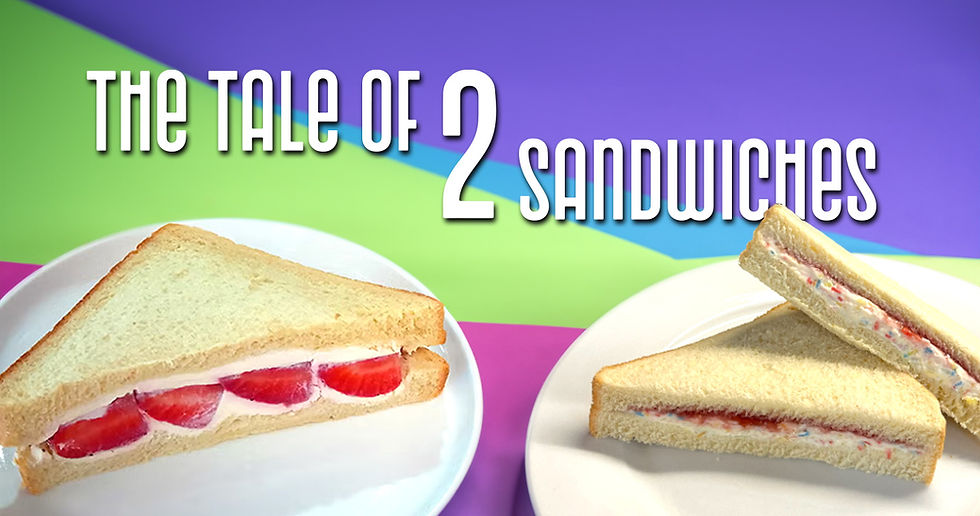Smart Snacking: NPD's Answer to the UK's "Always-On, Never-Stop" Lifestyle
- Rhys Bennett
- Jul 20, 2025
- 3 min read

The way we work and live has changed dramatically. For many in the UK, the lines between office and home are blurred, schedules are packed, and the concept of a traditional meal break often feels like a luxury. In this "always-on, never-stop" world, the humble snack has evolved from a simple treat into a crucial fuel source. But consumers aren't just looking for anything; they're demanding smart snacks: truly convenient, genuinely nourishing, and utterly delicious options that seamlessly fit into their fragmented eating patterns without compromising on health or taste. This presents an exciting, dynamic challenge for New Product Development (NPD) teams across the UK.
The market for these convenient, health-conscious options is booming. Data from Statista indicates that the UK savoury snacks market alone is projected to reach a value of £4.8 billion in 2025, showing consistent growth. Consumers are increasingly seeking functionality from their food, with a recent survey by FMCG Gurus revealing that 45% of UK consumers are more interested in food and drink products that offer health benefits, a figure that naturally extends to their snacking choices. This isn't just about reducing calories; it's about adding value – protein, fibre, specific vitamins, or sustained energy.
Beyond the Bar: Innovating for the Modern Consumer
For years, the snack bar dominated the convenient, healthy eating space. While they remain popular, the modern consumer's needs are far more diverse. NPD teams are now looking beyond traditional formats to create solutions that truly cater to desk-side dining, quick energy boosts between meetings, or satisfying options for busy commutes.
We're seeing a rise in portion-controlled savoury bites. Think about sophisticated savoury crackers paired with cheese portions, or mini packs of olives and nuts. Brands like Graze have long excelled at this, offering perfectly portioned snack boxes delivered to your door or found in supermarkets, designed to provide balanced nutrition and convenience for those working through lunch or needing an afternoon pick-me-up. Their innovative approach to diverse flavour combinations and tailored boxes speaks directly to the busy, health-conscious individual.
Another area of strong innovation is nutrient-dense mini-meals that don't require cooking. This moves beyond just 'snacking' into providing legitimate, wholesome sustenance in a convenient format. Look at companies like Mindful Chef, known for their meal kits, who also offer high-quality, single-serve pots and ready meals that can be heated quickly in a microwave, providing a balanced, flavoursome option for a tight schedule. While not strictly a 'snack,' they fulfill the same need for quick, nourishing fuel.
The Fresh & Functional Revolution
The demand for freshness in convenience is also driving NPD. Shelf-stable fresh options are becoming increasingly popular – think innovative packaging for pre-cut fruit and vegetable portions that genuinely stay fresh longer, or chilled protein pots that combine ingredients like cooked grains, vegetables, and lean protein. Ginsters, traditionally known for their pasties, has expanded their range to include 'Fuel' pots, offering things like Cajun Chicken & Rice or Moroccan Vegetable Tagine that provide a complete, convenient meal in a pot, ready to eat on the go or at a desk. These are designed to be more substantial than a typical snack but just as effortless.
Packaging innovation is crucial here. It’s not just about aesthetics; it’s about functionality. Think easy-open packs, re-sealable pouches for multiple servings, and designs that prevent mess when consumed 'desk-side' or on a crowded train. Brands that nail this user experience often win over repeat customers.
Designing for Fragmented Eating Patterns
Ultimately, smart snacking is about designing food that seamlessly fits into fragmented eating patterns. It's about recognising that consumers might graze throughout the day rather than having three distinct meals. It means creating products that offer:
Sustained Energy: Avoiding sugar spikes in favour of slower-release carbohydrates and healthy fats.
Nutrient Density: Packing more vitamins, minerals, fibre, and protein into smaller portions.
True Convenience: Requiring minimal preparation, no cutlery, and easy portability.
Taste Without Compromise: Ensuring healthy doesn't mean boring.
UK brands like Huel, while known for meal replacements, also play in this space with their ready-to-drink shakes and protein bars, targeting consumers who need complete nutrition on the go. Similarly, Eat Natural continues to expand its range of wholesome snack bars and clusters, offering ingredients like nuts, seeds, and fruit in convenient formats that provide sustained energy without artificial additives.
The opportunity for NPD in the "always-on" lifestyle is immense. By focusing on genuine convenience, uncompromising nourishment, and clever packaging, UK food and beverage companies can truly cater to the modern consumer's dynamic needs, making healthy, satisfying eating an effortless part of their busy day.



